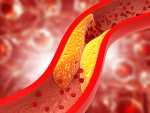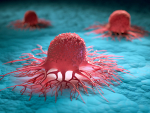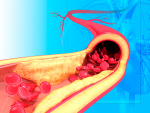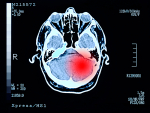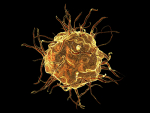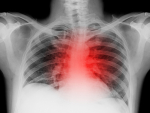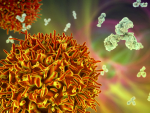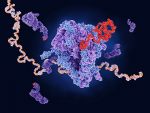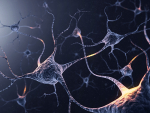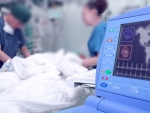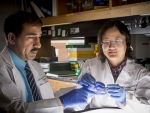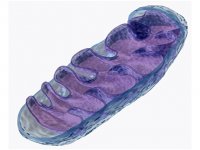Displaying items by tag: division of molecular and cellular pathology
Use of high-speed video microscopy and artificial intelligence provides calculated statistics like diastolic and systolic diameters, fractional shortening, and ejection fraction.
Tagged under
These immune CD8 T cells may provide a target for treating the buildup of fatty lesions in the arteries called atherosclerosis.
Tagged under
Vascular stiffening and calcification, which is accelerated by aging, affects multiple organs and plays a role in dementia. There are no treatments for vascular calcification, which makes arteries harden.
Tagged under
Mechanistic findings in this study may pave the way for future time-restricted feeding studies in muscle, providing a natural and affordable form of alternative therapy for managing pathologies related to metabolism and obesity.
Tagged under
The UALCAN data-mining portal at UAB has been used by cancer clinicians and researchers from more than 100 countries in their search for the molecular basis of cancer.
Tagged under
Tagged under
These changes, seen in a mouse model, are a likely proteome signature for reductive stress cardiomyopathy. About one in six heart failure patients shows reductive stress, according to a 2018 clinical study.
Tagged under
To facilitate gene-level queries of data from more than 10,000 cancer patient transcriptome sequences and proteomics data from 2,000 patients, researchers have developed a user-friendly cancer data analysis web platform called UALCAN.
Tagged under
After years of researching the SON gene, Erin Eun-Young Ahn, Ph.D., may have found the cause behind an extremely rare disease.
Tagged under
The drug Vismodegib, tested in a breast cancer model, is an inhibitor of hedgehog signaling, a form of cell communication manipulated by the tumor microenvironment.
Tagged under
Understanding how reductive stress is controlled may help personalize treatment of heart failure patients, leading to better outcomes.
Tagged under
Elizabeth Brown, Ph.D., has received a $3.1 million grant from the National Cancer Institute to study epigenetic contribution to the excess risk of a precursor of multiple myeloma in African Americans.
Tagged under
Differences in DNA methylation correlated with differences in heart-failure outcomes, as measured by two-year mortality.
Tagged under
Altered epigenetic marks on ribosomal RNAs appear to create a pool of specialized ribosomes that can differentially regulate translation of specific messenger RNA.
Tagged under
Further understanding is needed of the redox change called reductive stress and its impact on the onset and progression of neurodegeneration.
Tagged under
Tagged under
UAB researchers have identified a subgroup of heart failure patients with reductive stress who may be less responsive or even harmed by antioxidants, which could lead to personalized treatment and better outcomes.
Tagged under
The Central Alabama Caribbean American Organization shares Caribbean culture and is a resource for area students from the Caribbean.
Tagged under
The runx2 master transcription factor functions differently in chondrocytes and osteoblasts, two key cells in bone formation.
Tagged under
Mitochondrial DNA determines oxidant levels and may further explain why some people get sick and others don’t.

